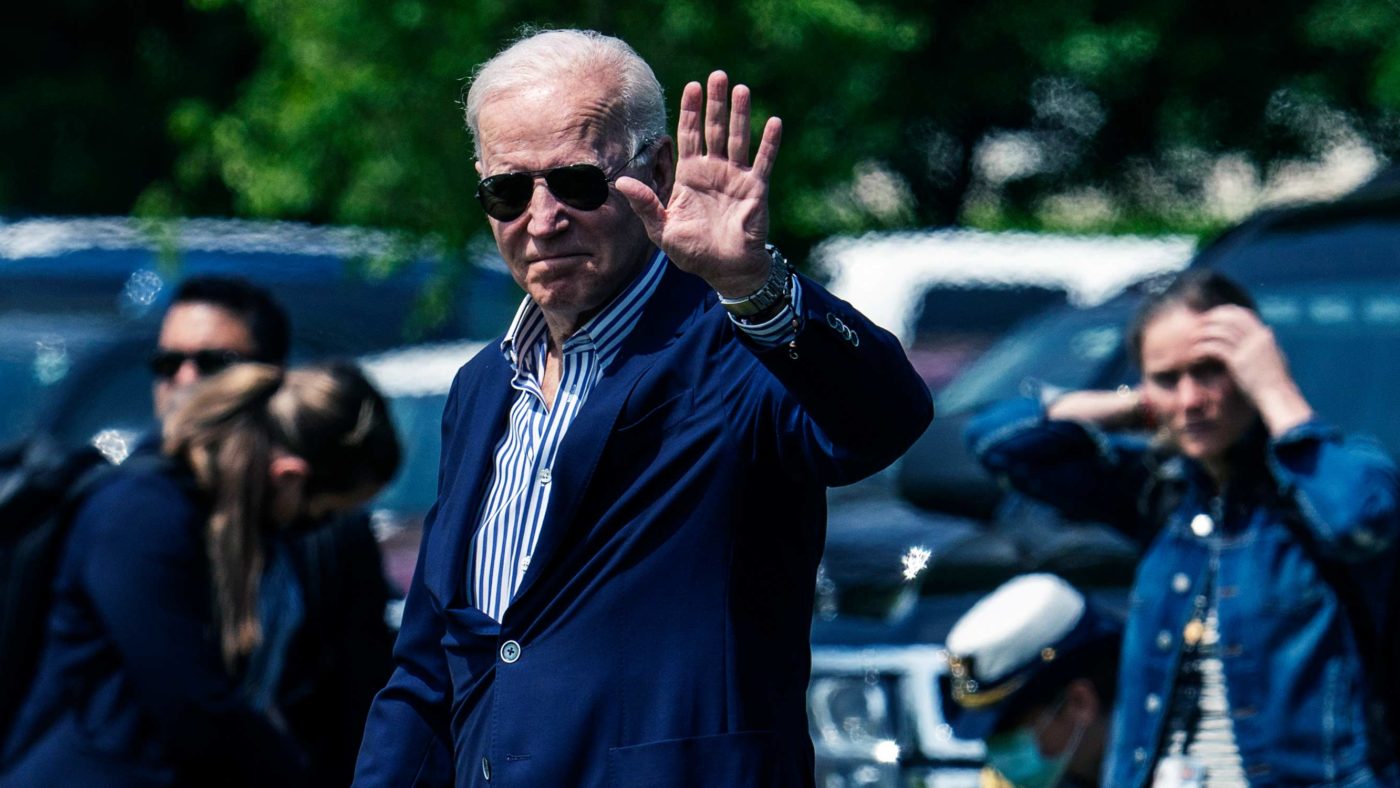The British people did not put up with years of division, political instability, and hard fought negotiations to take back control of domestic policy from the EU to see it handed on a silver platter to Joe Biden. To paraphrase the Iron Lady: “We did not roll back the frontiers of the EU superstate only to see them reimposed at the OECD level.”
Yet that’s just what’s being proposed by advocates of a global minimum corporation tax, a supranational policy which would sacrifice our sovereign rights and the primacy of Parliament.
The premise behind it is the usual pseudo-progressive guff about ‘levelling the playing field’ so that nasty businesses can’t shift their operations to take advantage of more hospitable rates. What is really happening, though, is a conspiracy to raise prices. If these were businesses, not countries, we would call this a cartel.
The only reason the policy is on the agenda at all is that Biden wants to raise corporation tax in the United States without the risk of being undercut. As such, he is using the USA’s considerable soft power to ensure that they face no international competition on tax rates, reducing the incentive for American companies to up sticks. That cuts both ways, of course, since if there is a global minimum wait there is also less incentive for companies to relocate back to the US. That there should be no taxation without representation is the principle that founded America. That cuts both ways too, Brits have no ability to choose the US President and the US President should have no business pushing policy onto Parliament or the British people.
Early reports suggest that large international businesses are also on board for the policy. And of course they are –– it creates higher barriers to entry for their competitors and makes for good PR. These multinational corporations are large and flexible enough to take anything that the countries of the world can throw at them, but their small, disruptive competitors have no such luxury. An unavoidably high level of tax would strangle them from the start.
Why should the UK go along with such a blatantly protectionist policy? The minimum rate suggested, at 15%, is less than the current UK rate. So what’s the harm? Beyond the fact that the UK should retain its right to be competitive on tax to attract investment from top companies, questions remain over how a global minimum tax could impact on key UK government policies. A global minimum tax could seriously undermine Chancellor Rishi Sunak’s key policies including the Super Deduction and the forthcoming Free Ports. This is because, if the global minimum tax design does not take account of these policies, companies that invest in the UK could simply be taxed elsewhere.
But British opposition to this power-grab is not just a matter of economics, but of constitutional principle. Our tax policy is devised by the Government with the consent of Parliament, who are elected by the people, to fit the needs of our country. That is for good reason: we have spent hundreds of years fighting for the supremacy of the people over government. It’s the same reason, incidentally, that so many revolutions have their roots in disputes over the legitimacy of taxes – just look at the Estates General in France, say, or the Boston Tea Party. It would be misguided in the extreme for Boris Johnson to sacrifice his tax-raising powers without so much as a debate in Parliament.
The UK also has a duty to its Crown Dependencies and Overseas Territories with whom it has deep historical and legal links. Those territories have been granted the ability to set their own tax rates, and have done so in a way that allows them to operate on a competitive basis, creating healthy economies in the process. They do not have the scale of large countries, with our strong domestic demand, natural resources, and substantial domestic capital. Their model also ensures that the capital of the world is gainfully employed and invested in growth right across it, greasing the wheels of global trade. Most of these territories are self-sufficient and loyally back Britain by choice, their residents think of themselves as British, and we should repay that loyalty with our strident support for their independence of the rights we’ve guaranteed by our aegis. It should be a mark of great shame should we be strongarmed into abandoning or crippling these small economies, just to appease the superpowers of the world.
Speaking of superpowers –– we know that not all countries will go along with this contrived tax regime, most notably Russia and China. If one wanted to devise a policy to drive more companies to China, consolidating their global economic power, this would be it. When Russia and China inevitably set their rates lower than this global minimum, even more companies will flock to their shores. It’s as good as an invitation to the West’s enemies to enrich themselves at our expense.
Whatever the theoretical rationale for a global minimum corporation tax, it’s bad economics, bad policy and an infringement on the basic principle that states should define their own tax rates. Britain should have no part in this half-baked, retrograde policy.
Click here to subscribe to our daily briefing – the best pieces from CapX and across the web.
CapX depends on the generosity of its readers. If you value what we do, please consider making a donation.


